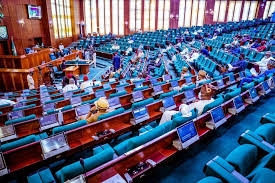In a decisive move, the House of Representatives has embarked on a comprehensive investigation into the Nigerian National Petroleum Company Limited (NNPCL), aiming to unravel the staggering loss of over $60 billion in revenue attributed to inflated cash calls within the Joint Venture agreements.
The decision to launch this probe was solidified following a motion presented during yesterday’s plenary session by Hon. Chika Okafor.
Highlighting the gravity of the situation, Okafor revealed that the NNPCL, acting on behalf of the federal government, engaged in joint ventures and related agreements with private oil companies in both the oil and gas sectors.
The primary objective was to foster sustainable revenue generation and economic development. Notably, the NNPCL holds approximately 60% of these joint ventures, with the remaining 40% distributed among other partners.
Expressing deep concern, Okafor honed in on the NNPCL Upstream Investment Management Services (NUIMS), a pivotal unit responsible for negotiating costs, both Capital Expenditure (Capex) and Operational Expenditure (Opex).
He alleged that due to inflated Cash Call Costs facilitated by NUIMS, losses totaling a staggering $60 billion had been incurred over the years.
The ramifications of these actions, as outlined by the lawmaker, extended to significant revenue losses, fiscal deficits, and an alarming increase in the nation’s debt profile.
In response to this crisis, the House mandated its Committees on Finance and Petroleum Resources (Upstream) to conduct an exhaustive investigation into all NNPCL Joint Venture Operations.
The investigation aims to ascertain the income and Cash Call costs due to each partner, especially the Federation/FGN, and evaluate whether due process and diligence were adhered to in these exercises.
In a parallel development during the same session, Hon. Jafaru Leko brought attention to the economic challenges posed by the depreciation of the Naira.
He presented a motion proposing the adoption of the Chinese Yuan (CNY) to mitigate the adverse effects of the Naira’s depreciation and enhance Nigeria’s economic stability.
Leko highlighted the International Monetary Fund’s (IMF) suggestion for developing countries to diversify their foreign exchange reserves, emphasizing China’s pivotal role in the global economic landscape.
He argued that adopting the Chinese Yuan as an additional foreign exchange reserve currency could reduce risks associated with exchange rate fluctuations and bolster economic stability.
As a result, the House mandated its Committees on Banking Regulations, Banking, and Other Ancillary Institutions to collaborate with the Central Bank of Nigeria.
Their mission is to explore the necessary mechanisms, policies, and partnerships required for the adoption of the Chinese Yuan as an official foreign exchange reserve currency, alongside other major international currencies.
A comprehensive report is expected within four weeks, paving the way for further legislative action.
Do you want to share a story with us? Do you want to advertise with us? Do you need publicity for a product, service, or event? Contact us on WhatsApp +2348183319097 Email: platformtimes@gmail.com
We are committed to impactful investigative journalism for human interest and social justice. Your donation will help us tell more stories. Kindly donate any amount HERE




